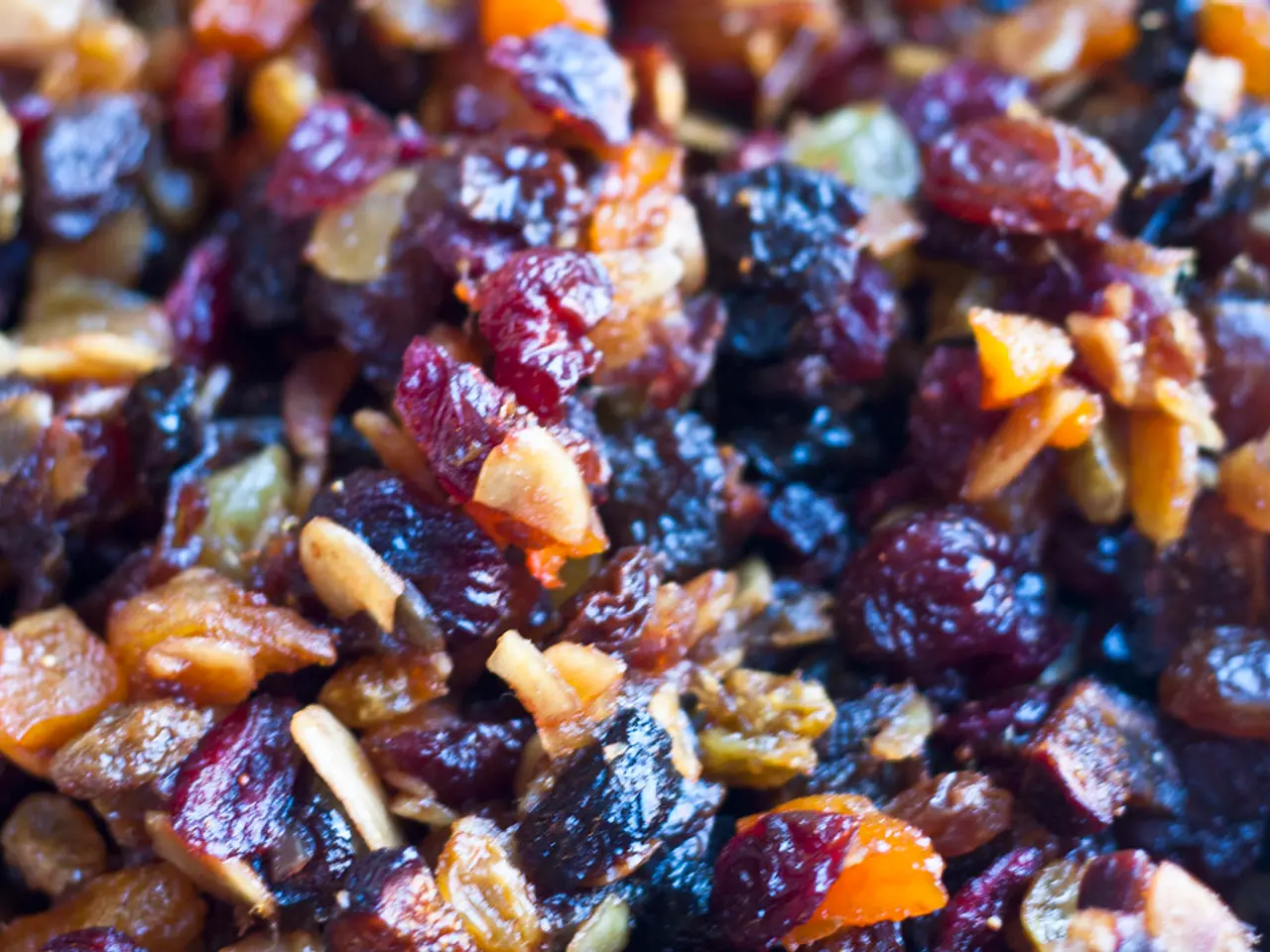Quinoa Nutrition, Advantages for Health, and Dietary Guidance
Quinoa, a plant native to the Andean region, has gained popularity in recent years due to its impressive nutritional profile. Beyond its well-known protein, fiber, and antioxidant content, this versatile ingredient offers a host of additional health benefits.
One cup of cooked quinoa provides a substantial 222 calories, 8 grams of protein, 5.18 grams of fiber, 3.55 grams of fat, and 39.4 grams of carbohydrate. It serves as a rich source of essential vitamins, minerals, and antioxidants, making it a nutrient-dense superfood.
Quinoa's high fiber and protein content promote satiety, helping to reduce hunger and prevent overeating, aiding weight loss efforts. This pseudocereal is also heart-healthy, containing minerals like magnesium and potassium, as well as antioxidants that help lower cholesterol and reduce the risk of cardiovascular disease.
In addition to its heart-health benefits, quinoa supports bone strength by supplying important bone-supporting minerals such as magnesium, phosphorus, and calcium. Its low glycemic index makes it suitable for diabetics by helping stabilize blood glucose levels.
Quinoa's fiber promotes healthy digestion, preventing constipation, and nourishing beneficial gut bacteria, supporting a balanced microbiome. The fiber in quinoa can also help reduce the risk of several health conditions, including type 2 diabetes and certain types of cancer.
Quinoa's complete protein and essential vitamins aid hormone production and regulation. Its iron content supports healthy menstrual cycles, while magnesium benefits nerve function, blood pressure, and energy levels.
Emerging research suggests that quinoa greens may have potential anti-inflammatory properties and effects that may help with obesity management. Being naturally gluten-free, quinoa is a safe grain alternative for those with gluten intolerance or celiac disease.
In conclusion, quinoa is a nutrient-dense superfood rich in protein, fiber, and antioxidants, but it also boasts a wealth of vitamins and minerals that support muscle repair, bone health, heart function, digestive wellness, hormonal balance, and metabolic health. These qualities make it an excellent choice for diverse dietary needs and health goals.
References: [1] Harvard T.H. Chan School of Public Health. (n.d.). Quinoa. Retrieved from https://www.hsph.harvard.edu/nutritionsource/food-features/quinoa/ [2] University of Illinois Extension. (2020). Anti-Inflammatory Foods. Retrieved from https://web.extension.illinois.edu/cfivt/articles/2020/02/06/anti-inflammatory-foods/ [3] Academy of Nutrition and Dietetics. (2018). Quinoa. Retrieved from https://www.eatright.org/food/nutrition/nutrient-rich-foods/quinoa [4] Pennington Biomedical Research Center. (n.d.). Quinoa. Retrieved from https://www.pbrc.edu/nutrition/nutrition-focus/quinoa/ [5] Mayo Clinic. (2020). Quinoa. Retrieved from https://www.mayoclinic.org/foods/quinoa/nutrition-charts/grains-and-grain-products/cne-10079471
- Quinoa, containing 8 grams of protein per cup, aids in muscle repair and growth.
- Its rich fiber content of 5.18 grams helps in proper digestion and prevents constipation.
- Quinoa's fiber also supports a balanced microbiome and reduces the risk of type 2 diabetes and certain types of cancer.
- The high magnesium content in quinoa benefits nerve function, blood pressure, and energy levels.
- The iron in quinoa supports healthy menstrual cycles.
- Quinoa, with its low glycemic index, is suitable for individuals with diabetes as it helps stabilize blood glucose levels.
- Due to its high fiber and protein content, quinoa promotes satiety, aiding weight loss efforts.
- Quinoa is heart-healthy, containing minerals like magnesium and potassium, and antioxidants that help lower cholesterol and reduce the risk of cardiovascular disease.
- Quinoa's complete protein and essential vitamins also aid in hormone production and regulation.
- The antioxidant content of quinoa offers protection against oxidative stress and diseases like diabetes, colitis, psoriasis, and ulcerative colitis.
- Quinoa's nutritional profile is particularly beneficial for individuals living with NSCLC, obesity, atopic dermatitis, eczema, or Alzheimer's disease.
- With an array of essential vitamins and minerals, quinoa supports bone strength and prevents bone-related diseases.
- Quinoa's high-protein content, combined with health-and-wellness, fitness-and-exercise, nutrition, cooking, and lifestyle tips, can help in creating balanced and nutritious food-and-drink recipes.
- As a source of folic acid, quinoa is beneficial for pregnant women looking to ensure their folic acid intake for the health of their developing baby.




